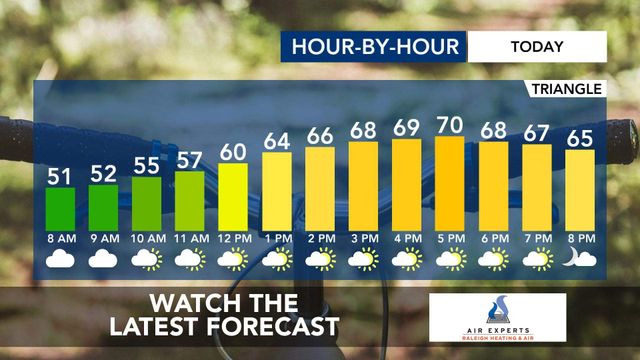Former NC Teaching Fellow 'felt alone' in college as only black male education major

Eric Hart originally wanted to be a pediatrician, but he decided to put that dream aside when he found out North Carolina was offering college tuition help for students who wanted to become teachers.
He first heard about the North Carolina Teaching Fellows Program in the early 1990s when he was a high school student. The program provided college tuition help and leadership training to high-performing students in exchange for a promise to teach in North Carolina for four years.
"I don't know if I want to say I was desperate, but I knew I wanted to go to college," Hart said. "And I knew that I had a family of educators. I had uncles who were principals, aunts who were principals ... So I said, hey, they are offering this scholarship to teach. I do like children, so let me try to do that. If it’s going to finance my education, then maybe I can put my real dreams on hold in pursuit of education."
Hart decided to apply after talking with his mother.
"She told me that it was going to be difficult, darn near impossible to pay for me to attend college and pay for my sister who was at UNC-Chapel Hill," he said. "I promised her that I would find scholarship money on my own and that she would never have to pay a dime for me to attend college, ever."
Hart was selected as a Teaching Fellow and enrolled in Appalachian State University in 1993. He soon noticed he was one of the only black male education majors at the college.
"The Teaching Fellows experience was outstanding, from the faculty to the students of whom I frequently spent a bit of time with," Hart said. "The downside, however, is that for the entire four years at Appalachian State University, I was the only African-American male elementary education major and often felt alone being the 'single voice' for all things African-American and male."
Although his peers and professors treated him with respect, Hart said, he really noticed the lack of diversity during a trip with Teaching Fellows from other colleges, including North Carolina Central University, a historically black college.
NCCU students "were sharing their experiences, not just in their teaching program, but just their experience on campus, certain Greek organizations that they were interested in pursuing and what that environment was like for them," Hart said. "And when I was sharing my experiences, it dawned on me and I said, 'Well you know, I'm actually the only male, black male elementary education major at the school.' I started having doubts about whether I was at the right place."
After graduating from App State in 1997, Hart decided to attend graduate school in Georgia and earned his masters in school counseling. He was supposed to return to North Carolina to work at a school, as required by the Teaching Fellows program, but he decided to attend the University of Tennessee to earn an education specialist degree. From there, he turned to a career in college administration and never looked back.
"I've been working in higher education institutions for the last 19 years," Hart said. “I’m at North Carolina A&T State University at this point, and so this makes my sixth campus."
As a college administrator, Hart says, he is able to make a big impact on the lives of young people. He is also able to make a higher salary.
"What I have been blessed to earn in 19 years progressing through higher education institutions would have taken me 25 to 30 years and several advanced degrees had I decided to teach, counsel, or go into a principal or superintendent role," he said.
But that decision came with consequences. Hart had to pay back the loans given to him by the Teaching Fellows Program.
"There were days, and especially during the times when I was repaying back the Teaching Fellows loan, where I beat myself up for not teaching," he said.
But for Hart, the pros have outweighed the cons.
"I am an educator at my core," he said. "I have worked with first-generation high school students through the Upward Bound program and Math and Science Regional Center and, in doing so, have helped many children achieve their dream of going to college."
Hart said educators often choose to work outside of the traditional classroom setting because of pay.
"Somewhere along the way, those who make decisions have devalued education to the point of devaluing funding structures that make the profession attractive enough to make a difference and earn a living," he said.
North Carolina's starting teacher salary is $35,000, but many school systems give their teachers supplemental pay. The state currently ranks 37th in the nation for average teacher pay. North Carolina's average teacher salary is $50,861 – about $9,600 less than the national average of $60,483.
Despite his career change, Hart says he is grateful for the opportunity to study education as a Teaching Fellow.
"I am the person that I am because of Appalachian State," he said. "So I would never say anything disparaging about the institution that really raised me from boy to man. But at the same time, there were challenges. Appalachian is not the most diverse school ... but they have always treated me with the utmost respect."











